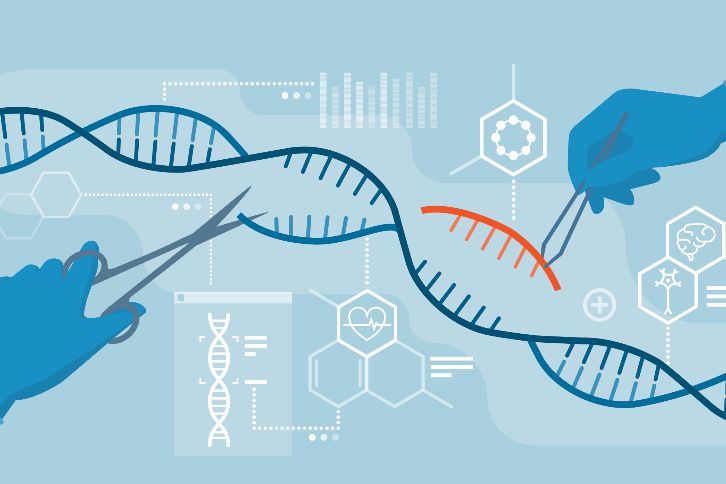Gene Genius or Pandora's Box? The CRISPR Conundrum
The CRISPR Conundrum
The company I have identified with an ethical dilemma to handle is CRISPR Therapeutics. In the last 5 years they have been in the news often regarding the ethics around their new discoveries and the potential applications. They work with gene editing and splicing in order to approach diseases and mutations in a new way. This new technology is still extremely experimental and many tests are being done on live human patients in order to test out the procedure and its success rates. One of the main concerns around this technology is the possibility of making changes within genes that lead to unforeseen mutations or off-target genome editing effects. There are many arguments that can be made to try and justify the testing whether saying it’s for the greater good of science or for the betterment of future generations, but a careful breakdown of the moral and ethical implications is crucial when making these decisions.
The company has been at the forefront of scientific advancement in the genetic field for over 10 years but has recently been getting notoriety from the general public because of the tests on humans now taking place. We are on the brink of a new era of medical and scientific breakthroughs. With this in mind we can also think about questions regarding scientists’ moral duty to safeguard future generations and the natural order of life. In the media CRISPR technology has been covered with a mixture of respect and fear. When it comes to fears, societal concerns about the dangers of using such technologies are highlighted by controversy over designer babies or the alteration of human evolution through germline editing. But when there are successful gene-editing trials, especially those aimed at curing incurable illnesses, excitement and optimism sets in. These procedures and technology have been advancing faster than ethics and laws can keep up with it. In these cases since everyone is “on the fence” the advancements are made and the ethics and morality of it is discussed after the fact. "There is a need for an extensive dialogue among scientists, ethicists, industrialists and policy makers on its societal implications."
Sources:
Pubmed - Ethical Issues Regarding CRISPR

This blog post raises crucial questions about the ethical considerations surrounding CRISPR Therapeutics' advancements in gene editing technology. Given the rapid pace of technological development and the potential implications for future generations, how can we ensure that the dialogue among scientists, ethicists, industrialists, and policymakers effectively addresses these concerns while promoting responsible innovation and ethical integrity?
ReplyDeleteI only just found out about germline editing. The ability to alter a human genetic code could reshape future generations. I know the science is still not 100%, but this still raises profound questions about the moral responsibility of scientists, the effects it could have on future generations, and how we regulate something that is still being tested.
ReplyDeleteYour blog post on the ethical dilemmas surrounding CRISPR Therapeutics offers a comprehensive exploration of the issues at hand. You effectively analyze the potential benefits of gene editing technology while also acknowledging the significant ethical concerns, such as unforeseen mutations and societal fears about designer babies. Your balanced perspective and call for extensive dialogue among scientists, ethicists, industrialists, and policymakers are commendable, as they underscore the importance of considering diverse viewpoints in navigating this complex issue. How might the differing cultural, religious, and philosophical perspectives on human enhancement and genetic modification influence the ethical discourse surrounding CRISPR technology, and how can these diverse viewpoints be effectively reconciled in decision-making processes?
ReplyDeleteThis topic is very interesting to me. I think these technologies are amazing and will help change the world. But, there is also a lot of ethical concern which is highlighted by this blog post. I think this science has a fine line of ethical and unethical practices. What regulations do you think can be used to aid this groundbreaking scientific advancement?
ReplyDelete